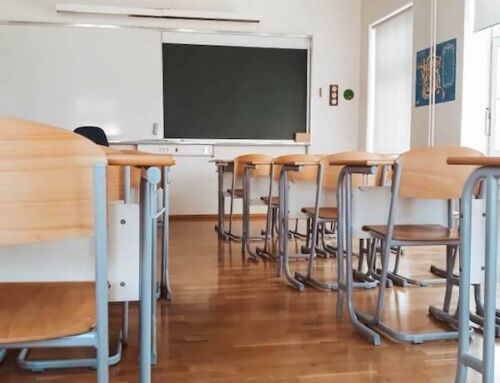Case numbers
-
As of Thursday, May 14, in Massachusetts: 82,182 cases and 5,482 deaths.
-
As of Thursday, May 14, in Boston: 11,395 cases, 551 deaths, and 4,089 recoveries.
Updates on testing
-
The Mayor provided an overview of the ongoing expansion of testing in Boston.
-
The antibody testing study, which the City conducted in partnership with Mass. General Hospital, is complete and the results are available. A total of 750 residents from 4 zip codes, in East Boston, Roslindale, and two in Dorchester, were tested. Participants in the study had not tested positive for the virus before, and were not currently experiencing symptoms. 9.9% of the participants tested positive for antibodies, indicating past infection. 2.6% tested positive for the virus, meaning they were currently infected. Those infected individuals were provided access to care.
-
The data shows differences in the numbers among neighborhoods, which is an indication of how localized the spread can be and how targeted the response needs to continue to be. The data does not show significant differences for race and ethnicity.
-
This localized, point-in-time sampling of residents does not give us a definitive picture of the spread of the virus citywide. However, it does suggest certain takeaways moving forward:
-
A 10% antibody rate is lower than expected, which indicates that physical distancing and hygiene precautions in Boston are making a difference. The data also suggests that around 90% of the city has still not been exposed to the virus, meaning Boston could be susceptible to another surge, which is why we must be cautious moving forward and appropriate precautions will continue.
-
A 2.6% positive rate among people with no symptoms suggests that about 1 in 38 people who do not have any symptoms could be carrying the virus. This emphasizes the importance of social distancing and face covering among people who are not experiencing symptoms.
-
-
The City continues to expand testing resources across all neighborhoods. Currently there are 20 total sites up and running, and testing has increased each week in Boston.
Partnership with the Rockefeller Foundation
-
The Mayor announced that Boston has been selected as a founding city for the Rockefeller Foundation’s Testing Solutions Group, along with L.A., Detroit, Miami, and New Orleans. This is a group of cities, states, and tribal governments that are sharing best practices and getting access to technical assistance for testing expansion.
Communicating the value of testing
-
The COVID-19 Health Inequities Task Force continues to engage with the community and guide the City’s work to ensure that resources are targeted in an equitable way.
-
The Mayor shared some of the recent feedback the Task Force has shared, including the need to communicate the value of testing to individuals. Some people are concerned about their employment, their immigration status, and their privacy.
-
The Mayor reiterated that if anyone meets the criteria to get tested, or if they are offered testing for any reason, it is a positive benefit for them and their family. Whenever a person gets tested, their privacy is protected, and they will not be asked for their immigration status. The procedure takes just a few seconds, it provides people with important information about their own situation and that of their family, and it helps them access necessary care. The Mayor stressed that if a person is not feeling well, they should contact their healthcare provider, call 3-1-1, or use the online screening tool at Buoy.com/Mass.
-
If anyone is experiencing a medical emergency of any kind, they should call 9-1-1 immediately.
Reopening plan
-
With the Governor’s reopening plan set to launch on Monday, May 18, the Mayor provided an update on the City’s approach to reopening.
-
The City has been gathering input from across Boston’s communities and economy, and is providing daily information to the state’s Advisory Board. The City will continue to work in collaboration with the State as the plan unfolds, and will make decisions for Boston based on the data and the needs of our residents and workers.
-
The Public Health Emergency declared on March 15 in the City of Boston remains in place until further notice, and the Mayor stated that he does not anticipate lifting it next week or in the near future. The same applies to the guidelines for physical distancing and face coverings.
-
The Mayor reiterated that decisions will be based on science, and that the City of Boston prioritizes the health and security of all residents as it continues to meet the needs of families, seniors, front-line workers, vulnerable people, and everyone in our city who is impacted by the crisis.
Recognizing first responders
-
The Mayor noted that this week is National Police Week, and today is Peace Officers Memorial Day. This observance was established by President John F. Kennedy in 1962. It’s a time to remember, and to honor, the police officers who have been hurt, harmed, or killed protecting and serving our communities.
-
All week, City Hall has been lit blue to recognize these first responders. The Mayor offered a reflection on the sacrifices police officers have made, and the pain and grief that their passing has left in many other people’s lives. The Mayor specifically recognized Boston Police Officer Jose Fontanez, who lost his life to COVID-19 on April 14, saying that the City of Boston’s prayers and support are with his family, his friends and community, and his fellow officers.
-
The Mayor also reiterated the essential role that police officers play, and the heightened risks they face, during the COVID-19 pandemic. He reaffirmed his commitment to providing them with the support and the resources they need in order to serve and protect the city.
Maureen Dahill is the editor of Caught in Southie and a lifelong resident of South Boston sometimes mistaken for a yuppie. Co-host of Caught Up, storyteller, lover of red wine and binge watching TV series. Mrs. Peter G. Follow her @MaureenCaught.




